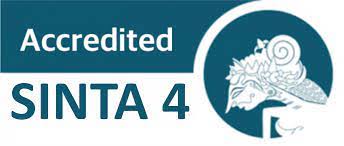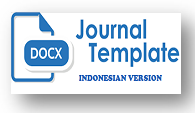About the Journal
Focus and Scope
Arcitech: Journal of Computer Science and Artificial Intelligence is a biannual and peer-reviewed journal dedicated to publish the scholarly study of Compuer Science and Artificial Intellegence from many different perspectives. The editorial board welcomes innovative manuscripts from Science and Technology field. The scopes of this journal are :
- Computer Science
- Information Systems
- Information Technology
- Computer Engineering
- Software Engineering and its Development
- Software Engineering Computer Networks
- Internet of Things (IoT)
- Security Systems
- Simulation Modeling and Applied Computing
- Computing High Performance
- Image and Speech Processing
- Big Data and Data Mining
- Artificial Intelligence
Peer Review Process
Manuscripts submitted to Arcitech: Journal of Computer Science and Artificial Intelligence will undergo a selection and assessment process by the Board of Editors to ensure their accordance with the writing guideline, focus, and scope, and that they are of excellent academic quality. The manuscripts will be reviewed using the double-blind peer review method in which case neither authors nor reviewers know each other identities.
Desk Review. At the desk review stage, manuscripts will be examined to ensure that they have met the writing guideline, focus, and scope with excellent academic quality. If they do not meet the conditions, the author will be given the opportunity to revise their manuscript according to the given criteria. However, there is also the possibility that the manuscript will be directly rejected.
Peer review. When the manuscript has passed the desk review stage, it will then be delivered to two reviewers who are experts in the field of the submitted manuscript. The review process will be done within four weeks. Manuscripts that did not successfully pass the desk review process will not proceed to this stage.
Reviewers decision. The reviewers will provide the following recommendations:
- Accepted; means that the manuscript is acceptable for publication;
- Accepted with minor revisions; means that the manuscript is acceptable for publication once it is revised in response to the reviewers concerns;
- Accepted with major revisions; means that substantive inadequacies in the manuscript, such as data analysis, the main theory used, and rewriting of paragraphs, need to be revised;
- Rejected; means that the manuscript is not acceptable for publication or the given reviews relate to very basic issues.
The reviewers decision will be considered by the Board of Editors to determine the ensuing process of the manuscript.
Revision Stage. Once the manuscript has been received with notations of minor or major revisions, it will be returned to the author with a review summary form. For manuscripts accepted with major revisions, authors are allotted four weeks to revise. Whereas for manuscripts accepted with minor revisions, two weeks is allotted for revision.
Final decision. At this stage, the manuscript will be re-evaluated by the Board of Editors to ensure that the author has revised in response to the reviewers concerns. In this final decision, the manuscript may still be rejected if the author did not seriously conduct the revisions necessary.
Proofread. Once the manuscript has been deemed acceptable by the Board of Editors, it will undergo a proofreading process to maintain linguistic quality.
Publication confirmation. At this stage, the final layout of the manuscript will be resent to the author to ensure that the content is in accordance with the authors writing. At this stage, the author may revise any typographical error found in the final manuscript. Once confirmation from the author is given, the Editorial Secretary will process the manuscript for online publication on the website as well as a print publication.
Publication confirmation. At this stage, the final layout of the manuscript will be resent to the author to ensure that the content is in accordance with the authors writing. At this stage, the author may revise any typographical error found in the final manuscript. Once confirmation from the author is given, the Editorial Secretary will process the manuscript for online publication on the website as well as a print publication.
Publication Frequency
Arcitech: Journal of Computer Science and Artificial Intelligence publishes twice a year (June and December). Each issue number (issue) amounts to a minimum of five (5) the title.
Open Access Policy
Arcitech: Journal of Computer Science and Artificial Intelligence provides immediate open access to its content on the principle that making research freely available to the public supports a greater global exchange of knowledge.  This work is licensed under a Creative Commons Attribution-NonCommercial-ShareAlike 4.0 International License.
This work is licensed under a Creative Commons Attribution-NonCommercial-ShareAlike 4.0 International License.
Plagiarism Check
ARCITECH Editorial Board will ensure that every published article will not exceed 20% similarity Score. Plagiarism screening will be conducted by ARCITECH Editorial Board using Turnitin
Journal Archiving
This journal utilizes the OneSearch: Indonesia National Library to create a distributed archiving system among participating libraries and permits those libraries to create permanent archives of the journal for purposes of preservation and restoration.











